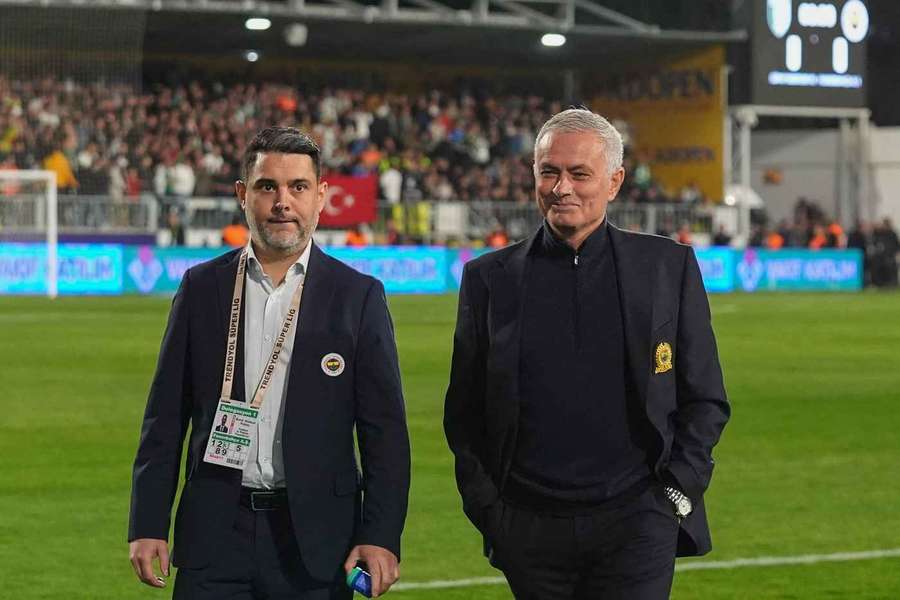The Portuguese was joining Chelsea after taking Porto all the way to a Champions League title, and fortunately for the Blues, he had the nous to back up the swagger.
Here was a man who, prior to his stint in management, was ostensibly known as Bobby Robson's translator at Sporting, Porto and Barcelona, and yet had the confidence in his own ability to hold sway over even the strongest of footballing personalities.
Mourinho was 'the boss' at Chelsea
John Terry was just one of many players to admit he would run through a brick wall for the man from Setubal.
"He 100 per cent changed the way I thought about football. In his first session, the lads came in and we thought: 'Wow, that's a proper session'" the former Chelsea captain once said in an interview.
"It was pre-season, and the first thing he said was to get the balls out. And for our generation, it was unheard of to get footballs out in the first pre-season session.
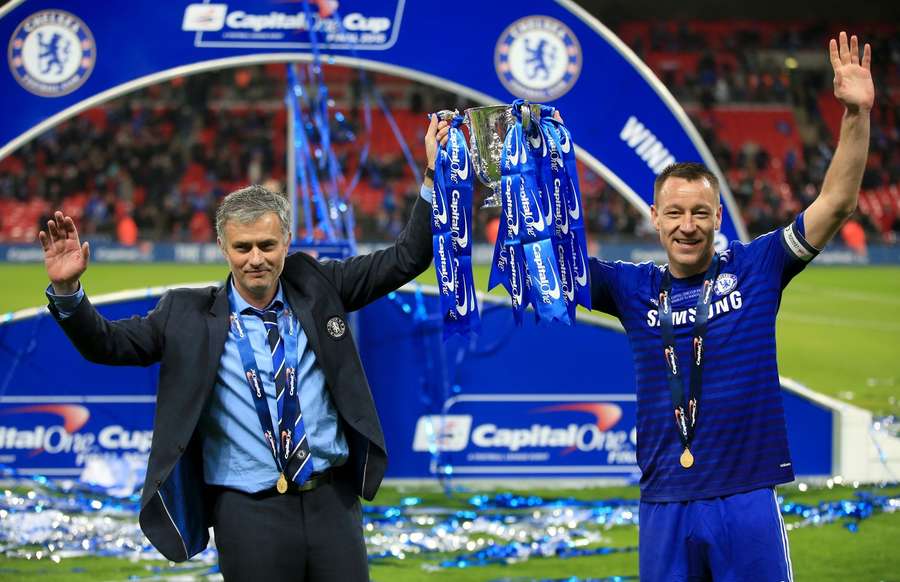
"He said you never see a pianist running around a piano, you see a pianist working on the piano. But we probably covered more distance with the ball than we would have done without it! Psychologically, he had us.
"The intensity, his presence, you felt it. If someone was messing about in the warm-up, or kicking the ball when he was speaking, he'd say: 'When I speak, the ball stays still, you listen to me'. He was the boss."
A historic treble-winning season at Inter Milan was the precursor to his time at Real Madrid, and though there was still little doubt that Mourinho was one of the brightest and most revered coaches of his era, controversy always followed the Portuguese.
Regrettable actions overshadowed Mourinho's brilliance
Perhaps the two worst examples of this involved Barcelona, a club that decided against employing him as first-team manager and instead installed Pep Guardiola in the position.
UEFA referees' committee chairman Volker Roth branded Mourinho "the enemy of football" in 2005 after the Portuguese heavily criticised Anders Frisk's handling of a Chelsea vs Barca match, leading to Frisk's retirement from the game after subsequently receiving death threats from Blues fans.
In 2011, during a melee in the Spanish Super Cup final second-leg, TV cameras would pick up Mourinho walking up to then Barca manager, Tito Vilanova, and poking him in the eye. It was an awful image beamed around the world, and Mourinho would later apologise and admit it was because he didn't like losing.
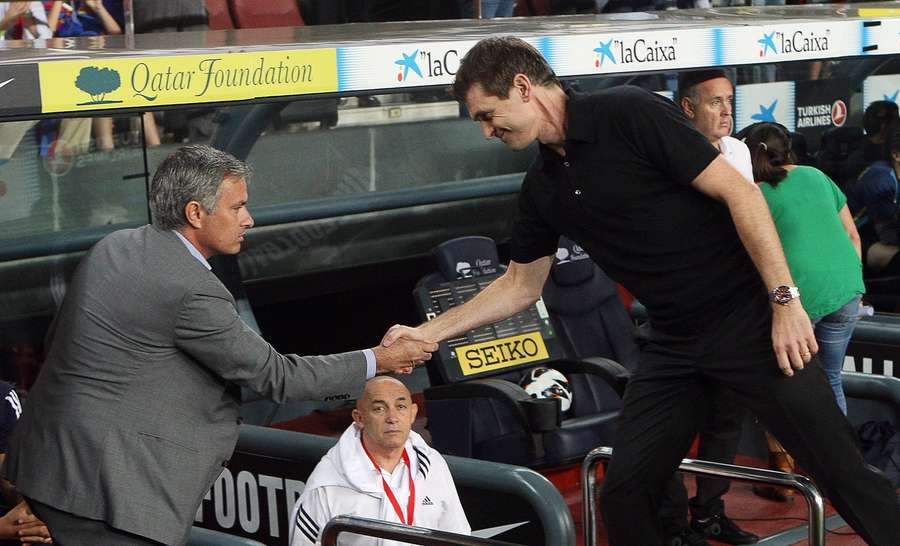
"I was the one in the wrong, I shouldn't have done what I did. Of course not, that negative image stays forever. Tito had nothing to do with it. I apologise to him," he said.
"I was a victim of myself. If I could, this would be one of the things I would never repeat. Before that, I had been winning, winning and winning. I got into this state that if I wasn't winning, it seemed like the end of the world to me."
Since his time at the Santiago Bernabeu, Mourinho had spells at Chelsea (again), Manchester United, Tottenham Hotspur, Roma and, currently, Fenerbahce, where he has again courted controversy.
During the recent match against arch rivals, Galatasaray, he sparked another melee after grabbing the nose of his opposite number, Okan Buruk, an action that has landed him a three-match ban and a fine of around £6,000.
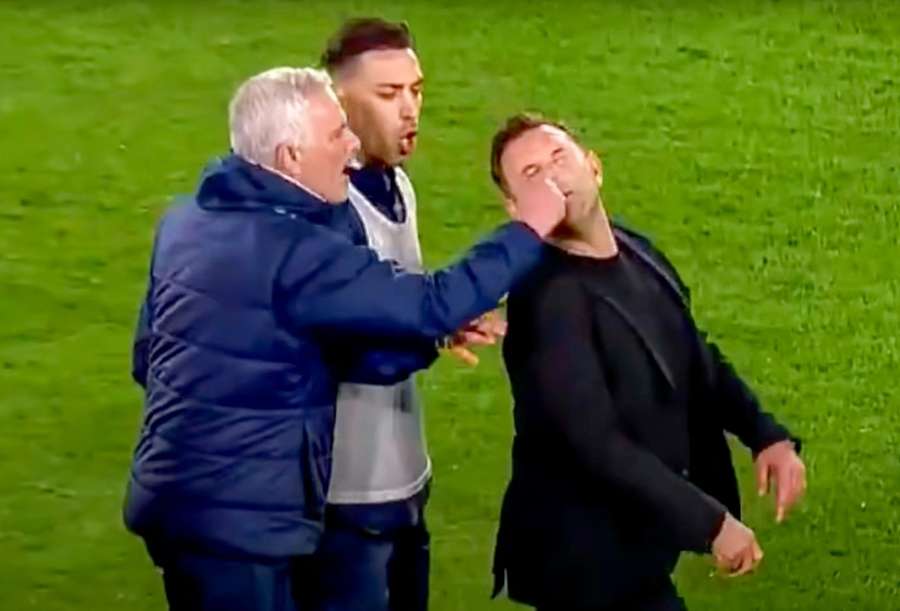
Notwithstanding his incredible managerial CV, there hasn't been an awful lot to write home about of late, which begs the question as to whether the so-called 'Special One' is still... well... special.
In terms of win percentage, Mourinho's stock has been on the wane for a while. Since 2014/15 at Chelsea, where he won 66.7% of his matches in charge, things were going steadily downhill.
A decent enough win percentage since 2014/15?
A woeful 36% (his worst ever) in the following campaign saw him depart Stamford Bridge for a second time, though his first two seasons at Man United in terms of wins (57.8% and 66.1%) were decent enough.
41.7% in his third campaign at Old Trafford saw a move to Tottenham, where 45.7% and 52.1% were only a marginal improvement of his final season at the Theatre of Dreams.
Serie A beckoned, and 50.9%, 47.3% and 46.4% in three seasons at Roma saw another slight downturn, though his 63.4% win percentage at Fenerbahce has finally seen things move back in an upward direction.
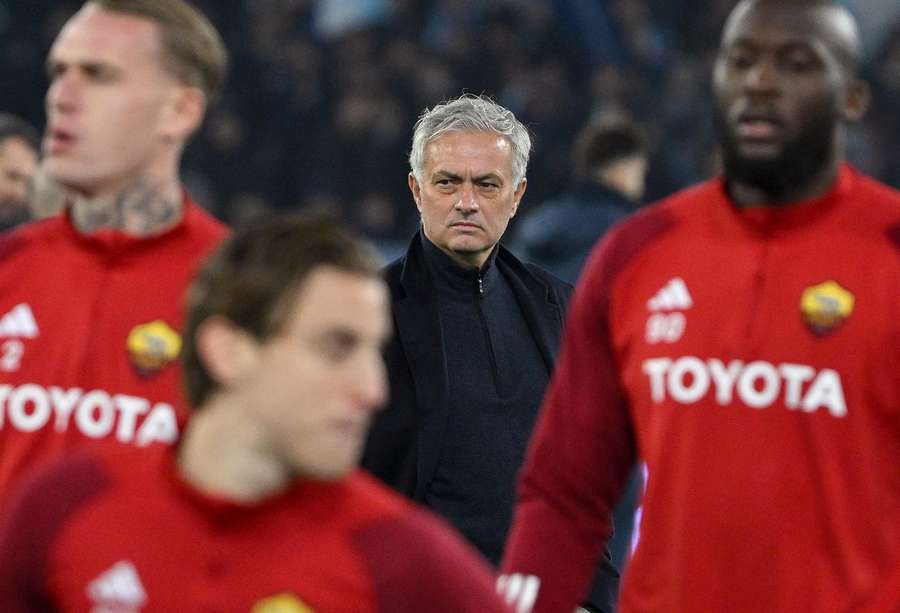
Indeed, his 26 wins from 41 games put him just two victories away from his third-best campaign over the past 10 for the number of wins.
His first two seasons at United saw 37 wins apiece, followed by 36 wins from 54 games during his second Chelsea reign (14/15).
27 wins in the 21/22 season with Roma is Mourinho's third best return over the last decade, but that will fall by the wayside if two games out of the last seven in the league are won this season.
Goals win games, and Mourinho needs more at Fenerbahce
In terms of goals scored under Mourinho in the same time frame, his teams have managed over 100 per season on just three occasions: Chelsea in 14/15 (109), and, perhaps surprisingly for some, Man United in both 2016/17 and 2017/18 (105 and 101 goals, respectively).
The 91 scored so far at Fenerbahce (74 in the Turkish Super Lig) is the fifth-best output of a Mourinho team over the past 10 seasons, and just one ahead of the 90 Roma scored in 2021/22.
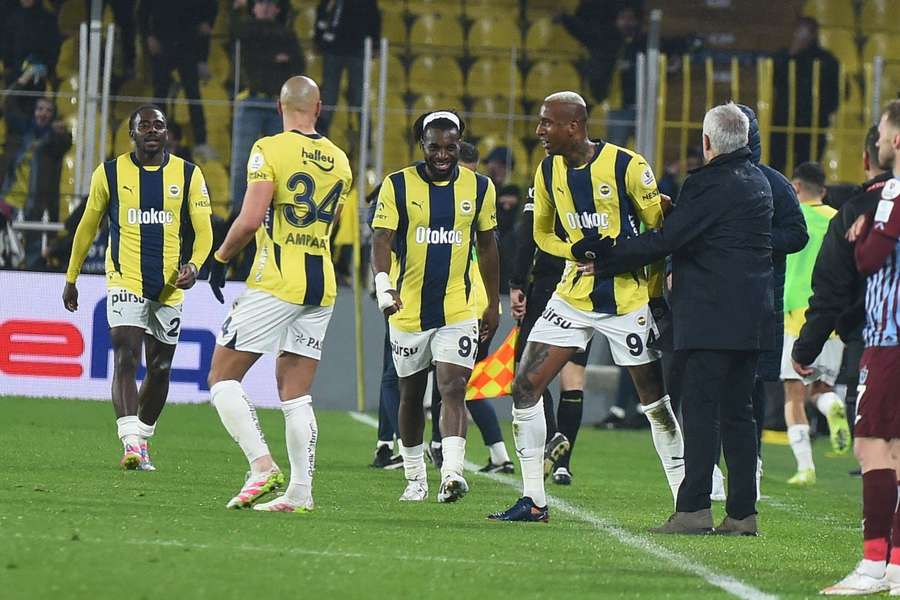
The 62-year-old has always prided himself on the strength of his defences, too, and the Turkish giants have only conceded 43 so far this season. However, that's already more than four of the last 10 campaigns, and just a few shy of three further seasons.
That said, one positive aspect of his current employment is points per game. With 2.1 being the current standard, that's on par with United's 17/18 season and only behind Chelsea's 14/15 campaign when the metric was at 2.3.
Just five losses so far in 2024/25 puts him one shy of the four from 14/15, and a vast improvement on the 16 losses during 22/23 with Roma.
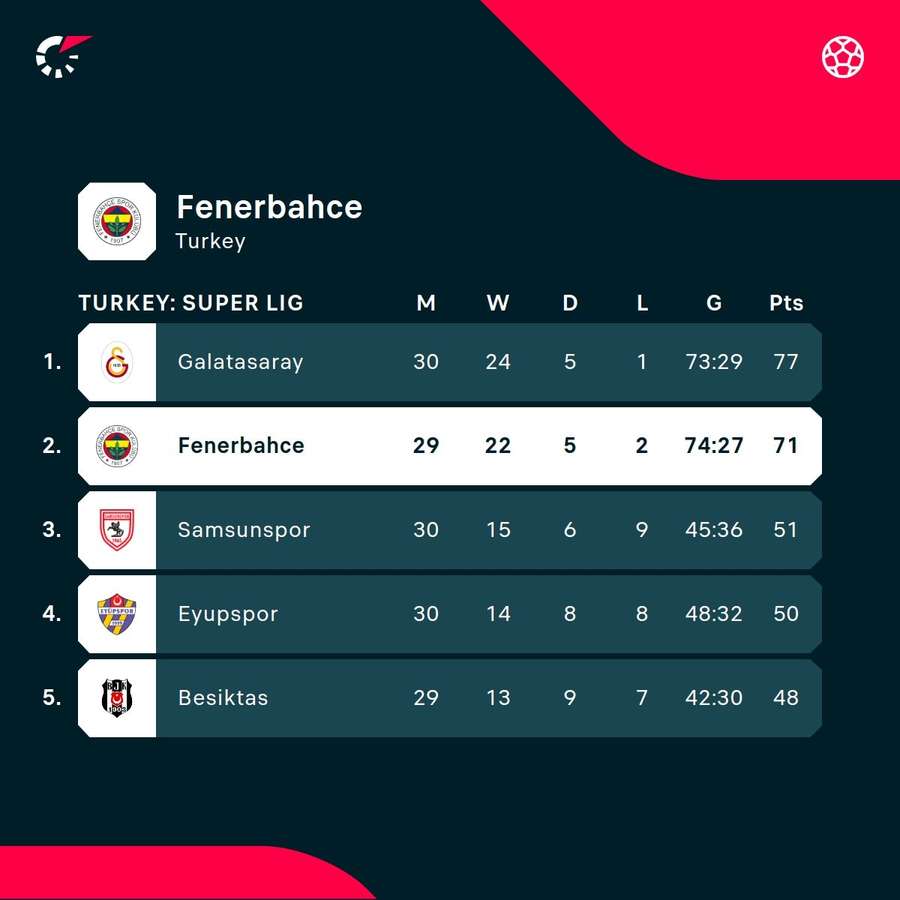
Even if one could argue that the Turkish Super Lig can't be classed as one of the top five in Europe, Mourinho has still taken to it like a duck to water.
His Fenerbahce side remain only six points behind Galatasaray (with a game in hand), who also have the cup semi-final to concern themselves with on top of their league commitments.
It's self-evident that Mourinho's influence over almost every aspect at the club he inhabits does still remain intact, and even if the light doesn't shine quite as brightly for him as it did a decade or so ago, there's definitely still something special in there somewhere.
Follow Fenerbahce's next match with Flashscore.

